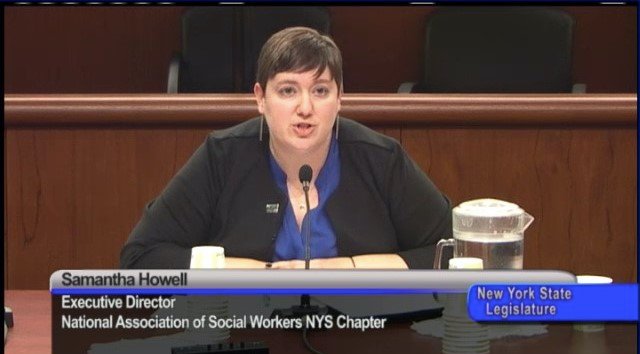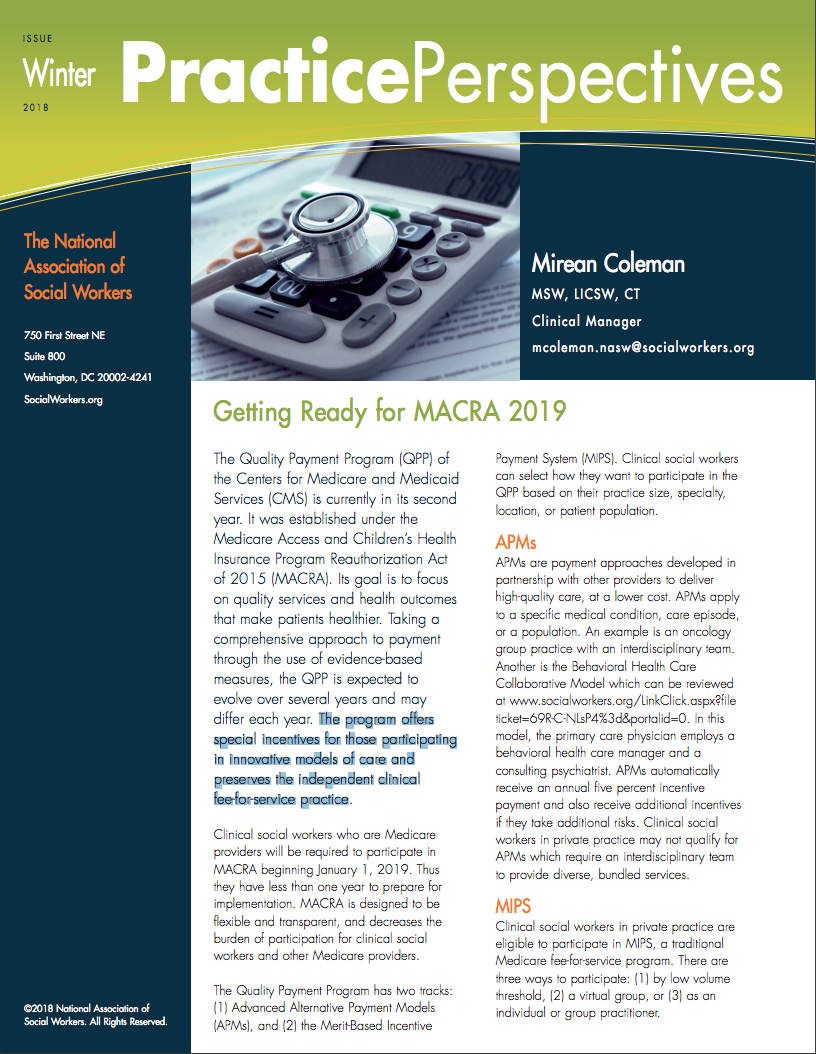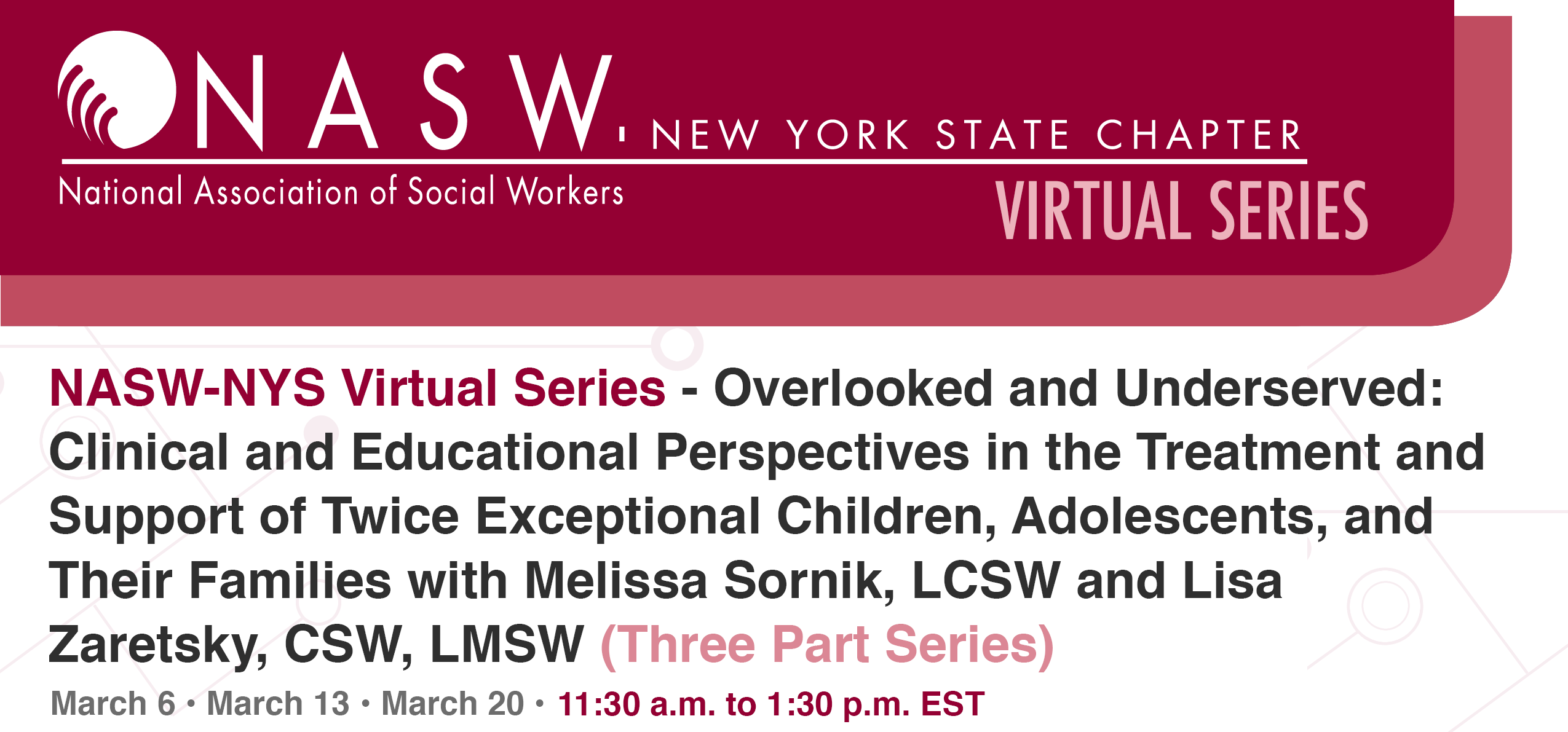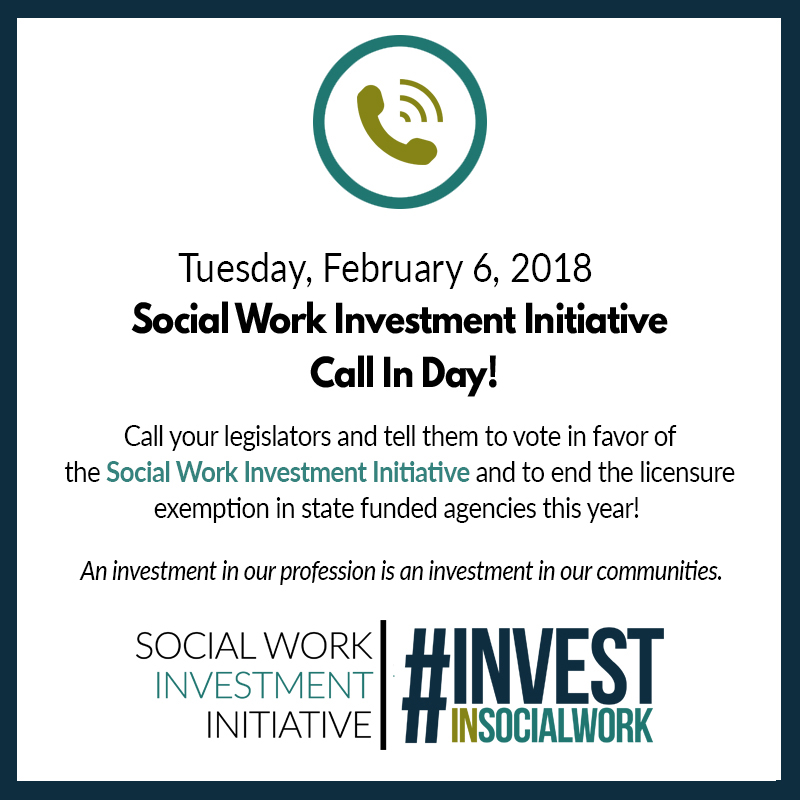
Media Contact: Kania Ponto, MSW
NASW-NYS
518-463-4741 ext 22
kponto.naswnys@socialworkers.org
NYS Social Workers and Members of the Legislature Unite to Pass School Social Work Bill
Legislation aims to help schools meet the critical mental health needs of students
(ALBANY, NY, February 12, 2018) – Leaders of the National Association of Social Workers – New York State and New York City Chapters and the New York State School Social Workers’ Association, were joined by Assistant Speaker Félix W. Ortiz (D-Kings) and Senator Jesse Hamilton (D-Brooklyn) today to introduce legislation that would mandate every school district provide their students with access to a school social worker to assist with the students’ mental health.
In January, the Assistant Speaker introduced the bill (A.9533-A) in the Assembly. Senator Hamilton introduced a companion bill (S.7526-A) in the Senate. The bill, if enacted, is a strong step in ameliorating the pressure on districts to meet the mental health needs of students, as well as improving their overall academic achievement.
“Certified social workers are the “gatekeepers” for our youth, adolescents, and young adults’ education to help guide their future successes. Many of these students face problems that require professional help. Early intervention is the most effective way to prevent difficulties later in life,” said Assistant Speaker Félix W. Ortiz. “We have seen a significant increase in recent months of school bullying, deliberate acts of discrimination and hate towards the disabled, LGBT, DACA, and immigrant student – fired up in part by policies coming out of the White House. I am sponsoring this legislation (A.9533-A) to insure that all elementary, intermediate, middle, junior and senior high schools in New York State have an effective social worker program in place to meet the needs of their students. We must assist teachers in shouldering burdens that they are not trained to handle while at the same time educating full classes.”
Of the impetus, NYS Senator Jesse Hamilton said, “Mental health, emotional health and wellness all matter to educating our children. A parent fearing eviction, violence at home or in the community, any number of circumstances can impact a child’s ability to learn. School social workers have the expertise to help children, help families, and help our communities address these needs. This legislation would secure better learning outcomes by bringing school social workers’ experience to bear. Through resolving unmet needs, we must act to better prepare students to learn. I see firsthand the critical work social workers do in my district office, which serves as a field placement site permitting social work students and professionals to serve our community. Thanks to the New York State School Social Workers’ Association, the New York City and New York State Chapters of the National Association of Social Workers, and all the professionals, advocates, parents, and educators who are making the case that school social workers have an integral place in all our schools.”
The introduction of the bill comes amid an alarming number of violent school incidents, bullying, and school administration concerns related to keeping pace with the mental health needs of students. The National Institute of Mental Health estimates that nearly one in five children from the ages 13 to 18 currently have and/or previously had a seriously debilitating mental disorder. In their 2017 annual finance survey, the New York State Council of School Superintendents reported an overwhelming number of their districts scored the increasing mental health needs of youth as an alarming top priority.
The bill has garnered strong support from the state’s leading social work organizations, who applaud the Assistant Speaker and the Senator for moving beyond awareness and taking action to invest in the academic and mental wellbeing of students by advocating for adequate school social work services.
“NASW-NYS is dedicated to ensuring that our communities have access to the best services possible. We support Assistant Speaker Felix W. Ortiz and Senator Jesse Hamilton because our children should not be excluded from mental health services, particularly at a time when they face bullying, self-discovery, academic competition, and maturation. Providing licensed social workers to students will help ensure that they have a safe place to seek help and address any problems they face,” said Samantha Howell, Esq., Executive Director of the National Association of Social Workers – New York State Chapter.
“District employed school social workers provide social, emotional, and behavioral support to schools’ most vulnerable and at-risk students, as well as their families, through a variety of modalities that are preventative for the general population and targeted for those at risk for academic failure and dropping out of school,” said Margaret E. Barrett LCSW-R, School Social Worker and President of the New York School Social Workers’ Association.
School social workers are Specialized Instructional Support Personnel (SISP) who work with students, parents, and educators to provide consultation and interventions concerning home, school, and community factors in order to improve students’ educational functioning. They provide crucial mental health services in schools, have the training to meet students’ social emotional needs, and are often the first place where mental health concerns are recognized and addressed. Their unique expertise and qualifications cannot be replaced by untrained professionals, but when budgets are under pressure, services to support wellbeing are either overlooked or typically the first to be slashed.
Research shows a multitude of factors including poverty, substance abuse, community violence, emotional and physical health issues, early sexual activity and family conflicts make it difficult for some young people to make it through school. Such issues are beyond the scope and purview of teachers, and only fall within the scope of practice of school social workers. Through counseling, crisis intervention and prevention programs, school social workers help young people overcome the difficulties in their lives, and as a result, give them a better chance at succeeding in schools.
“Children attend schools every day with the hope of learning the tools needed to be successful in life. In my experience as a school social worker, I have observed both internal and external factors that impede on a child’s ability to achieve positive academic outcomes, leading to special education referrals. School social workers are uniquely equipped with the tools to help ameliorate the multi-layered challenges that young people may face, especially those living in poverty and in communities in distress,” said Evelyn Bautista-Miller, LMSW, Certified Bilingual School Social Worker and School District Administrator. “A social worker in each school will foster the home school collaboration, enhancing academic outcomes. I thank Assistant Speaker Ortiz and Senator Hamilton for introducing this bill. This bill is sensible, logical, and we can all agree it’s well overdue.”
# # #








